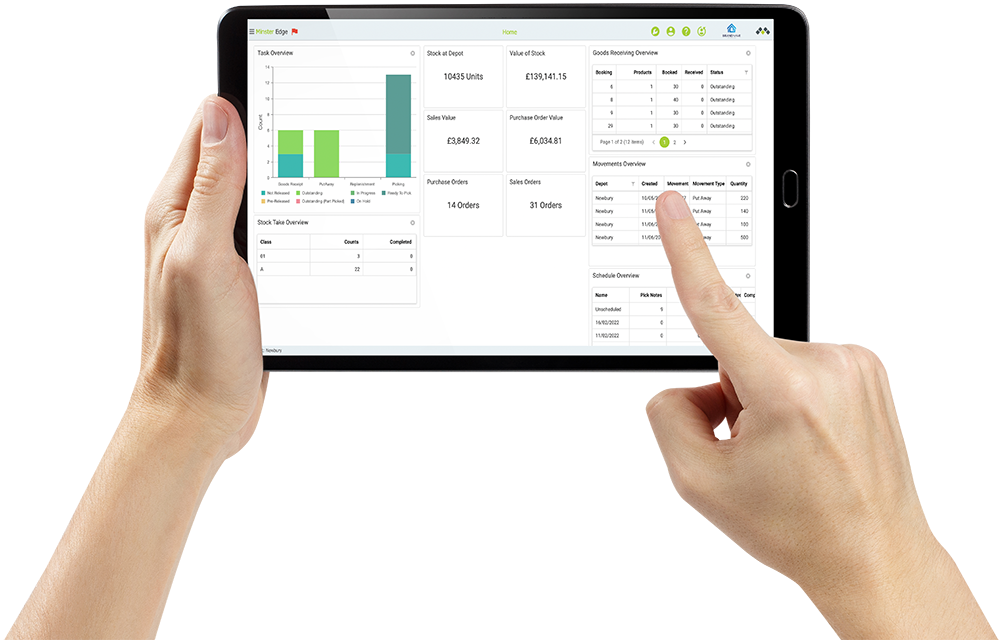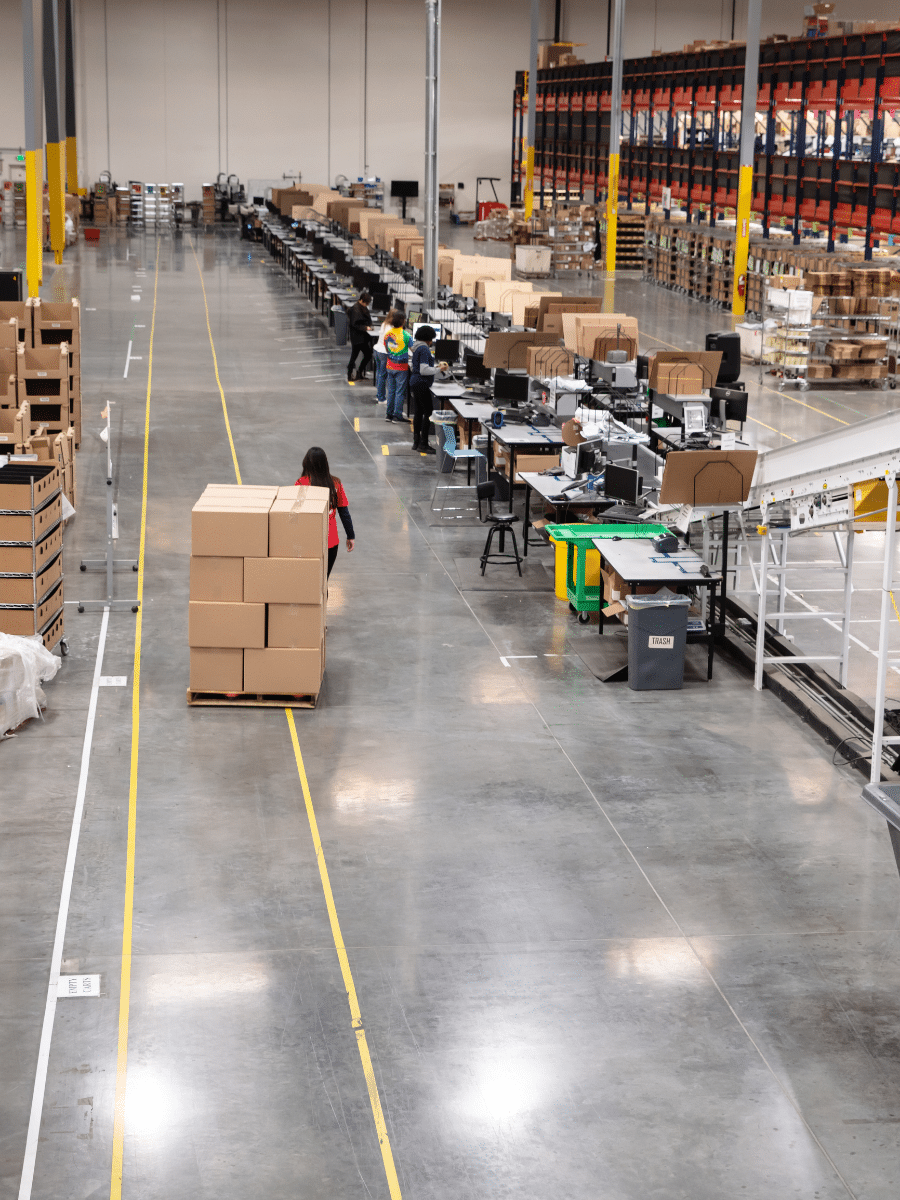Warehouse Management System
Warehouse Management System (WMS) – the Minster WMS software solution is designed to streamline your warehouse distribution and logistics processes delivering greater accuracy, control and profitability.

Warehouse Management Software
A bespoke, flexible WMS solution tailored to your individual warehouse requirements
Minster WMS offers a complete warehouse management solution for businesses involved in the distribution of products. Our bespoke software is extremely comprehensive and highly flexible with the added benefit that it can be configured to suit all warehouse requirements.
The software is used by wholesale distributors, contract warehousing organisations and local authorities to distribute products as diverse as food, sports equipment, cosmetics, stationery, cleaning materials and medical equipment.
From the point of an order being placed online, to picking, packing and delivery the Minster Warehouse Management System will help you manage your sales, procurement, delivery, customer service and reporting requirements efficiently delivering you a multitude of benefits.
0
%
Accuracy
0
%
Cost Saving
0
%
Increase in Efficiency
£
0
Average Annual Saving
A Fully Comprehensive Warehouse Management Solution
The Minster WMS Warehouse Management System comprises a fully comprehensive set of tools that are designed to integrate into your specific business processes, streamlining your activities to create the most efficient and cost-effective environment for your business operations.
Solutions
Discover The Range of Services Minster WMS can offer to enhance your business.
Customer Experience
Dedicated client portal allowing customers to access order history and sales support.
Procurement
Supporting your procurement processes for maximum profitability and peace of mind.
Warehouse Management
Control all aspects of your warehouse operation efficiently and effectively.
Delivery & Logistics
In-cab logistics solution – manage the end-to-end transportation and delivery process.
Reporting
Access key management and KPI information through the dedicated reporting function.
Systems Integration (IntaData)
Consolidating cross-platform activity to provide greater visibility, overview and control.
3PL Warehouse System
A 3PL Warehouse System designed for warehouse leaders who want an Edge on their competitors
Companies Using Minster WMS
We are proud that our warehouse management system helps to support the control and distribution systems of some core brands.

"Minster WMS Show Great Flexibility In Developing Individual Systems For Their Clients Needs"
Bradshaw International
"Our Company Has Grown Up Using Minster WMS Logistics Software"
Brakes Group Head Of Logistics
"Minster WMS Understand The Logistics Business Completely"
Best Food Logistics Head Of Logistics
“We were impressed, and greatly admired, that they had our interests at heart. The Minster management team demonstrated they wanted to help and support our business as a whole”
Samuel Sweet CEO and Co-Founder, Sweet SquaredLatest News
Read the latest news from Minster WMS and the wider warehouse management industry.
Leveraging Blockchain Technology for Enhanced Warehouse Management
In the expansive world of commerce, an intricate network of supply chains and warehouses quietly yet powerfully orchestrates the flow…
Mastering the Complexity of Multi-Channel Fulfilment
In an era where consumer demand is as varied as the channels they shop from, the art of multi-channel fulfilment…
The Strategic Importance of Location in Warehouse Management
In the rapidly changing landscape of global commerce, every decision can create ripples of impact. The digital era, marked by…
Discover how Minster WMS can work for your business?
Would you like to understand more about the Minster Warehouse Management System and how it can be integrated into your business? Book a no-obligation demonstration today or request a call back!



"Without Minster WMS We Would Not Be Able To Do What We Do"
Marks & Spencer Head Of Logistics